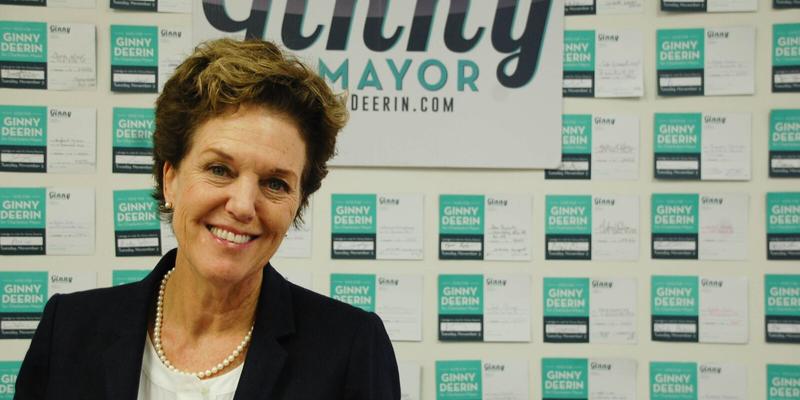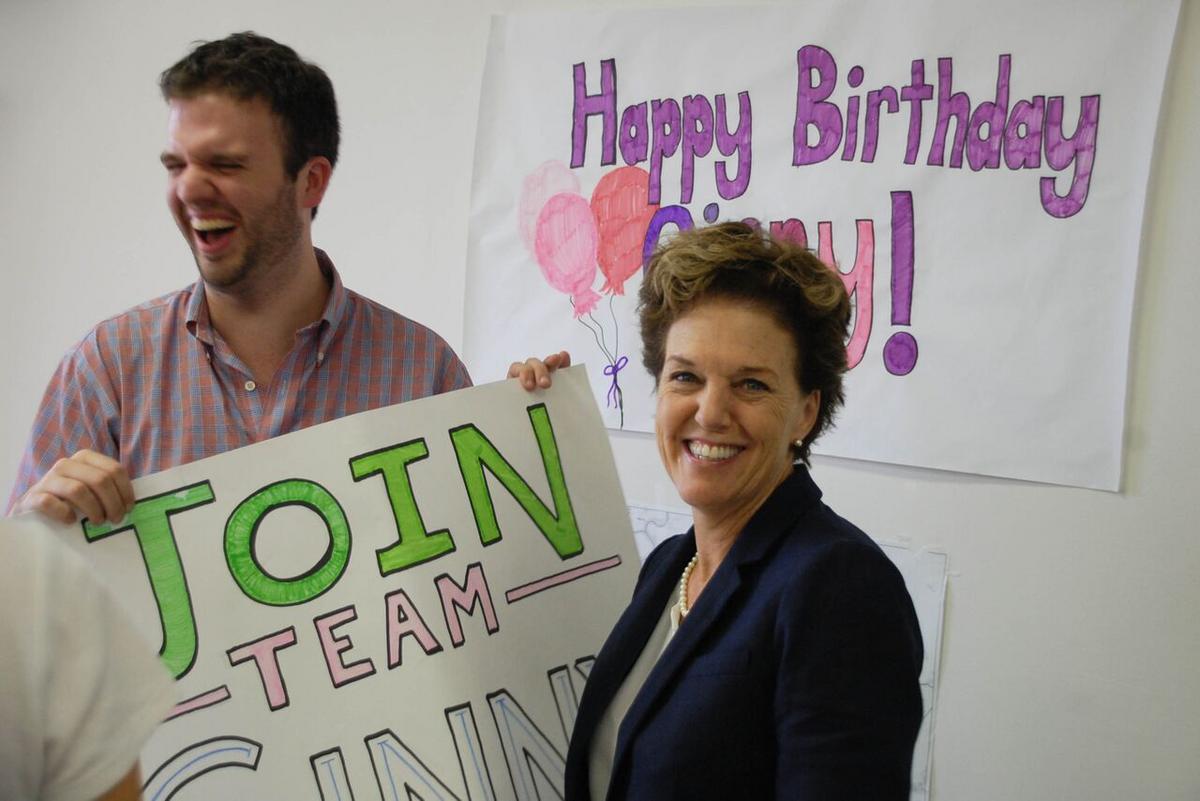
If Ginny Deerin is successful in her upcoming bid to be Charleston, South Carolina’s next mayor, she will make history, becoming Charleston’s first female mayor and South Carolina’s first LGBT mayor.
As the nation attempts to move past the trauma of the Mother Emanuel AME tragedy, where nine members of the community were slain by a racially motivated terrorist, some residents seek a different, more progressive Charleston. When asked where Charleston stands as a city, Deerin said, “After everything that Charleston has been through, it is a city looking for its next leader. Charleston wants someone who will protect and preserve our history and lead to make this city even greater. This race is not one of gender; it is a race of vision, integrity, inclusion, and progress. I believe that is who I am. Being a woman is not why people will vote for me, but it would be an interesting side note.”
Mother, LGBT member, non-profit founder and gardener, Deerin is one of eight mayoral candidates looking to replace Mayor Joseph P. Riley Jr., a man who has been in office for the past 40 years.
She is no stranger to the spotlight and has gained notoriety from her 2014 bid to become South Carolina Secretary of State as well as the success of her multi-million dollar non-profit, WINGS For Kids.

Beyond Deerin’s non-profit involvement, she has worked with Mayor Riley throughout his longstanding tenure and served as his campaign manager in 2011. According to The Post and Courier, she helped lead the citizen response in the aftermath of 1989's devastating Hurricane Hugo, and took part in a 113 mile march led by Mayor Riley from downtown Charleston to Columbia to fight for the removal of the Confederate flag—15 years before it was actually removed.
She has been involved in many major Charleston developments, and speaks on being affected by the recent Mother Emanuel AME tragedy.
“I worshipped at Mother Emanuel the Sunday before the shooting. I was the only white person in the congregation. I looked to the back of the church and saw the Rev. Clementa Pinckney. I looked at him and could see how much he loved working with kids. I share that love. I can still feel his embrace of me that Sunday morning. The congregation was so loving, wanting to make sure I felt welcome in their sanctuary. After the tragedy, Charleston became hyper-connected in many different ways. You get to a place where you feel so sad because of what all these members of our community went through. All you can do now is reflect and try to understand how to make Charleston better.”
While Charleston’s response of interracial unity was felt and appreciated across the world, it remains a highly segregated city, with many of its poorer areas populated by struggling African-Americans. Charleston’s historical segregation and racial tension is not lost on Deerin. She comments on a comprehensive transportation plan she has put forth that aims to diminish longstanding racial separation with improved bussing, bike paths, sidewalks, and other amenities.
“I believe that improved transportation can really help to tackle the problem of segregation. I don’t think anyone wants to live in a city where everyone is the same. It’s boring and not what I want. I want Charleston to be diverse and progressive.”
Deerin’s campaign platform calls for a more progressive city, from her promise to improve the education system to her interest in changing minds and hearts on social issues. She opens up to Fusion regarding the recent Supreme Court ruling that allowed same-sex marriage, a decision that has affected millions, including many in the South.
“The legal ruling was enormously important. What got us to that point were hundreds of thousands of small acts of courage, whether through legal action, difficult conversations with parents, or living authentically. It makes me proud to be an American.”
Beyond Deerin’s allegiance to inclusivity, the pride that emanates from her comes partly from her own affiliation with the LGBT community. As she seeks the highly coveted position of mayor, she does so with transparency. She does not hesitate when asked about her sexual orientation.
“I am a member of the LGBT community. It is an aspect of who I am. I am also a mom, a non-profit founder, and a gardener. [Being a member of the LGBT community] is an enormous part of who I am, but it is only one part. Being elected the first LGBT mayor in South Carolina would show a progressive, inclusive face to the rest of the world."
The idea of an LGBT woman securing the seat of Charleston mayor would serve as a metaphor for a city that is slowly becoming culturally separate from its troubling past, a city that has quickly become a national example for how to combat tragedy with inclusion, education, and love.

As Deerin continues her campaign across the state of South Carolina, Charleston voters wait patiently for November 3 to begin a unique new chapter, borne from the rubble of heartache and the hope for a different—potentially history making—tomorrow.